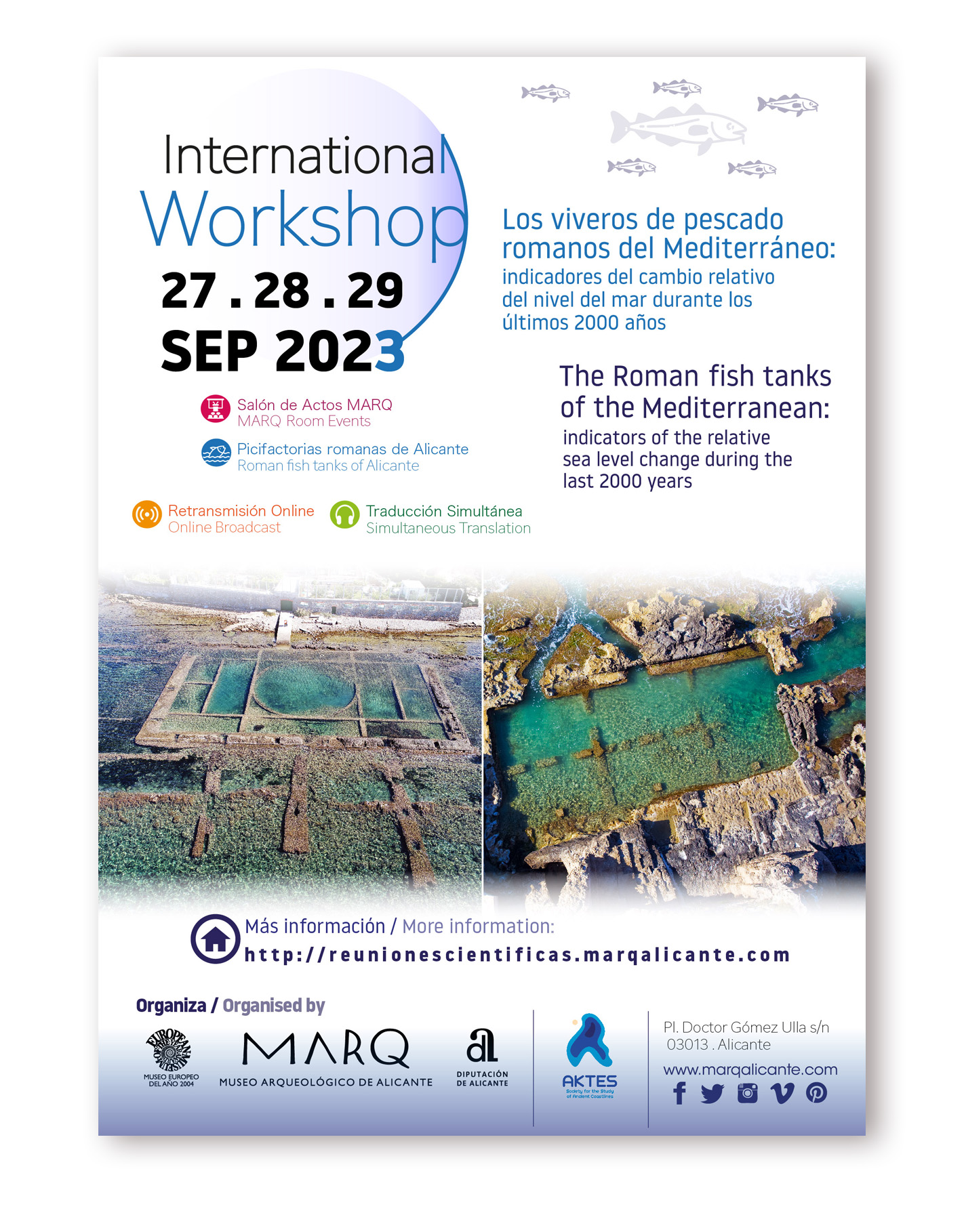29 Jun International Workshop 27.28.29 Sep 2023
27.28.29
Sep 2023
International Workshop
Organization: Museum Alicante MARQ
Co-organization: AKTES
The Roman rock-cut fish tanks (piscinae) are coastal constructions of particular value not only because they provide important knowledge about construction techniques, aqua-culture and fish consumption during the Roman period, mainly between 200 BC and 200 AD, but also because they give compelling evidence on the relative sea level change since the period that they were constructed and were in use. Fish tanks were designed carefully and constructed diligently, so as to recreate the natural habitat of the fish. To this purpose they were cut into the rock along the coastal zone and communicated with the sea through channels. A key feature of the rock-cut fish tanks is that for effective functionality, their construction is closely related to the coeval tidal range and mean sea level. Therefore, their current position relative to the sea level determines the magnitude of the local relative sea level change during the last 2000 years. As the Roman fish tanks follow nearly the same construction principles and fall within the same chronological range, inter-comparisons of a significant number of fish tanks from Spain, Greece and Italy will highlight the differential impact of isostasy and geotectonic regime on coastal areas throughout the Mediterranean.
The workshop is open to those interested who can officially register and who will be provided with a certificate of attendance, if they can prove that they have attended at least the lecture sessions held at the museum and the technical visit to the fish tanks of La Illeta and Albufereta on the afternoon of the 27th.
The technical visits to the Alicante nurseries are open to those registered. The organisation covers the travel expenses. The organisation does not pay for the subsistence of those registered.



